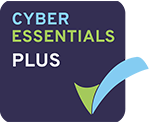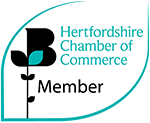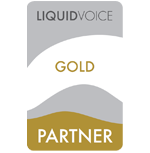GDPR Call Recording Best Practices
If your company needs to record phone calls and virtual meetings, recognising the best GDPR practices when doing so is essential.
The General Data Protection Regulation (GDPR) was introduced as a new data law by the European Union in 2018 to help protect consumer personal data. As a result, call centres and other businesses that have to record phone calls must be very vigilant to not misuse the personal data of consumers and observe this law.
Here are some of the best practices to follow when it comes to GDPR call recording.
What is GDPR?
General Data Protection Regulation (GDPR) is a set of data protection rules that were implemented to provide EU citizens with more control over their personal data. This includes protecting personal data such as name, email address, mobile number and other information such as personal interests or social media activity.
GDPR has placed limits on what organisations can do with personal data and how people can gain access to information about consumers. These stringent rules were brought into effect in order to provide consumers with more rights, control and assurance that their data is protected, wherever it may be stored.
What does GDPR mean for call recording?
That being said, the new rules and regulations haven’t meant that phone call recordings have come to a halt. For instance, some organisations need to record phone calls for training exercise purposes or to resolve disputes between customers and clients.
How to make your call recordings GDPR compliant
Even if your only intention to record phone calls is to use them for future internal training sessions, recording phone calls with people in the EU could be interpreted as monitoring under GDPR. Try following some of these policies to make sure your company is complying with GDPR call recording best practices:
1) Establish consent with the consumer
Receiving consent from the consumer is one of the six lawful reasons that allows companies to store data under GDPR. This means that you have to obtain data directly from the individual.
When it comes to recording the call, the salesperson could start the call by disclosing that it’s being recorded for a purpose. The only issue with notifying the consumer that the call is being recorded is that it can have a negative impact on the conversation; people are more conscious about what they say whilst being recorded and therefore may not give a true response to a question.
2) One-way call recording
By only recording your employee during phone calls with consumers, you won’t hold any data from individuals in the EU and GDPR won’t apply. Although two-way conversations are ideal for getting an idea of consumer behaviours, one-way recordings allow you to truly analyse the responses and behaviours of your sales team. This allows you to identify the best ways to communicate with consumers going forward when it comes to training staff.
3) Get consent from your employees
GDPR laws don’t only apply to customers; it also applies to employees within a company. Even if some members of staff work remotely outside of the EU, it’s an HR best practice to establish consent with them. By doing this, companies can create a sense of trust amongst their staff as they’ll recognise the business has their best interests at heart.
Other best practices to follow include:

- Process all data lawfully, fairly, and in a transparent manner
- Only collect data for specified, explicit, and legitimate purposes
- All data obtained must be adequate, relevant, and limited to what is necessary
- Ensure data is accurate and kept up to date
- Only hold data for the necessary amount of time and not any longer
- When processing data, ensure all personal data has the appropriate security
Want to find out more?
There are lots of uncertainties around GDPR at the moment, so we recommend discussing GDPR with a lawyer if you’re unsure about anything to do with this new data law. If you would like to find out more about call recording solutions for your business, get in touch with our team of experts on 0345 241 1521, or info@intuitycomms.com today.










